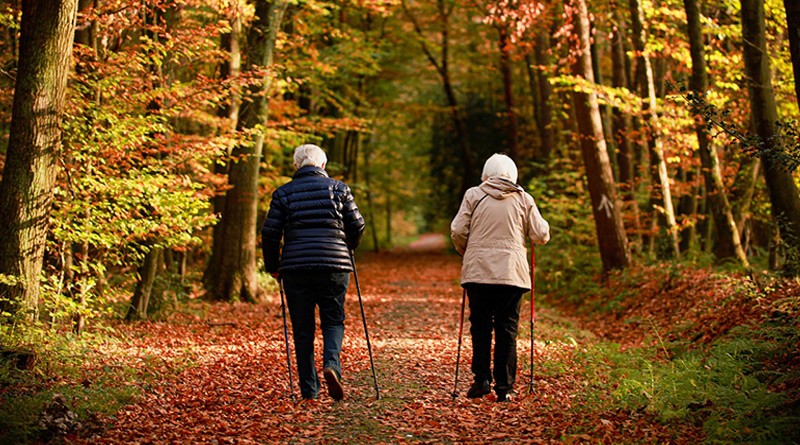Over 70’s Walking More Today Than A Decade Ago
The International Longevity Centre (ILC) have today published new analysis of the National Travel Survey data, which demonstrates worrying trends away from active travel among young people, as it warns that England’s transport infrastructure is ill-suited to support healthier longer lives for its citizens.
Their new analysis shows that:
- Over-70s now walk more often and further than a decade ago – on average walking 223 trips in 2022, compared to 155 trips in 2012, with 63% more trips of over a mile.
- People aged 17 to 29 walk less often and for shorter distances – on average walking 197 trips in 2022, compared to 233 trips in 2012, with 36% fewer trips of over a mile.
The new briefing explains that even prior to the pandemic and the shift towards hybrid working, the average distance travelled per person per year had fallen by a tenth, from around 7,200 miles in 2002 to 6,500 miles in 2019.
Since 2000, the average number of trips per person per year has fallen 20% – from 1,074 to 862. We are now shopping more online, commuting less and making fewer business trips. We are also travelling less for purposes like education, visiting friends, or participating in sport. But many of us are going on more holidays and day trips than we did 20 years ago.
It also sets out that England’s public transport infrastructure has been crumbling over decades and is now threatened by changing travel patterns and behaviours, particularly post-pandemic. According to the Campaign for Better Transport, 27% of bus services have disappeared in a decade, while the number of services on official registers in England dropped from almost 17,000 in March 2012 to just over 12,000 in March 2021.
Despite the increase in people over 65, there has been an over 50% decrease in the number of concessionary bus journeys by older and disabled people over the last decade. By 2040, it’s anticipated that over 17 million people in the UK will be over the age of 65, with a significant proportion residing in rural or suburban areas where public transport options are limited. As a result, more older people are reliant on cars.
New analysis of the transport survey shows that:
- Between 2016 and 2020, older people (aged 70+) with a full driving licence increased both in licence numbers (23.6% from 4.5 to 5.6 million) and as a percentage of all people with full driving licences (from 11.7% to 13.6%).
David Sinclair, Chief Executive at the International Longevity Centre UK said:
“Travel isn’t just about getting from A to B – with the right infrastructure it should be a pleasure. Yet our current transport infrastructure reflects an outdated focus on getting workers to workplaces – which no longer meets the needs of our population.
“While current generations of older people may be walking more, the drop in walking among younger people raises serious red flags for their longer-term physical and mental health – as well as for the health of the planet.”
“We need decent, affordable public transport that supports leisure and pleasure travel while commuting dwindles, as well as great infrastructure for walking and cycling, to reduce stress, pollution and help people live longer, healthier lives. “
Aviva is supporting the ILC’s research into longevity, Doug Brown, CEO of Aviva UK & Ireland Life said:
“It is encouraging that the over 70s are walking more as there are multiple benefits of including a walk as part of your daily routine, such as an improvement in heart health and overall fitness. However, the research also highlights that those aged 17-29 walk less often, yet we know walking can incrementally improve social wellbeing. Data from our previous “A life less lonely?” briefing with the ILC found that the same age group is more likely to feel chronically lonely. Walks with friends could be one way to socialise and improve mental wellbeing.”






